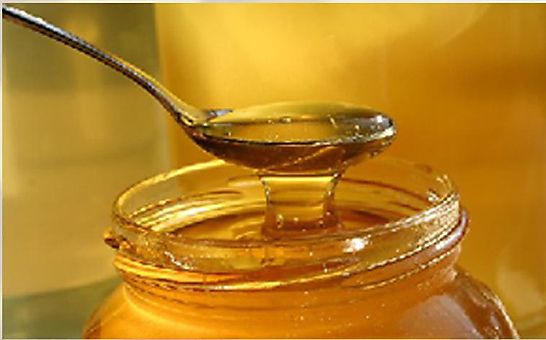People have used raw honey in traditional medicine for hundreds of years. This sweet, natural substance may contain healthful elements that processed honey does not have.
Honey provides a range of health benefits. Raw honey, which comes straight from the beehive, contains healthful bee pollen, bee propolis, and plenty of antioxidants.
The medicinal benefits of honey are;
Antioxidant effects
Researchers believe that some of the main health benefits of honey come from its antioxidant content. Natural honey contains a range of compounds that act as antioxidants, including phytochemicals, flavonoids, and ascorbic acid.
Antioxidants reduce oxidative stress in the body by mopping up free radicals. Scientists have linked oxidative stress to a range of chronic health conditions, including many cancers. By eating an antioxidant-rich diet, people can reduce their risk of chronic disease.
Nutrition.
Honey contains specific nutrients that can make it a healthful addition to the diet.
The exact nutrition and chemical composition of raw honey varies between different countries and environments and depend partly upon which types of flowers the bees gather their nectar from. Regardless of these factors, honey still contains healthful compounds, such as antioxidants, amino acids, and vitamins.
One tablespoon or 21 grams (g) of raw honey contains 64 calories and 16 g of sugar. These values may vary between brands and batches. Honey naturally contains sugar. A little more than half of the sugar in honey is fructose. Research has linked fructose to various health problems.
However, even with its fructose content, honey may be a healthier option than table sugar. Some research suggests that honey may offer a protective effect against diabetes and some types of honey may help improve cholesterol levels.
People who have diabetes or who are on sugar-restricted diets may choose to eat honey in moderation to avoid significant changes in their blood sugar levels. Pure honey has a glycemic index (GI) of 58, meaning it has a medium effect on blood sugar levels. Learn about the GI scale here.
Antibacterial action
Honey can help clean wounds and prevent infection.
Honey is a natural antibacterial and antimicrobial agent. It contains hydrogen peroxide and glucose oxidase and has a low pH level, which means it can kill harmful bacteria and fungi. Also, because of its unique chemical composition, it does not help yeast or bacteria to grow.
Because of its antibacterial action, people can use it to cleanse wounds. Research has shown that manuka honey, which is a type of raw honey, can kill common pathogens including:
Escherichia coli or E. coli, a bacteria that causes food poisoning and wound infections
Staphylococcus aureus or S. aureus, a microbe that causes skin infections
Helicobacter pylori or H. pylori, a bacteria that causes stomach ulcers and chronic gastritis
Wound healing
Numerous studies have suggested that honey works well as a wound healing dressing.
A review confirms that honey is useful in wound healing because of its antibacterial, anti-inflammatory, and antioxidant properties. Some evidence also suggests that honey has antiviral and antifungal properties.
Also, honey is acidic, which helps release oxygen from the wound and promote healing. Apply raw honey directly to minor cuts and burns then place gauze or a bandage over the wound. Alternatively, people can purchase manuka honey products for wound care at some drug stores, or choose between brands online.
Relieving coughs
Several studies have suggested that honey may be as or more effective than some over-the-counter (OTC) cough medicines. Many cough medicines are not safe for younger children to take, so honey may be a good alternative for children over one year of age.
A meta-analysis suggests that honey may provide an effective way to decrease the severity and frequency of a child’s nighttime cough. One small-scale study found that milk and one type of honey mixture relieved children’s coughs as effectively as an OTC medicine.
To relieve cough, take a teaspoon of raw honey and avoid other liquids or foods afterward to allow the honey to coat the throat.
Treating diarrhea
Raw honey may have a soothing effect on digestion, helping with symptoms of diarrhea.
A study of 150 children with acute gastroenteritis found that those who received honey with an oral rehydration solution had a better recovery from diarrhea than those who did not receive honey. The children who received honey had fewer bowel movements and recovered faster from the illness.
To help treat mild diarrhea, try taking a teaspoon of raw honey or mixing honey with a drink. Avoid taking too much honey because excess sugar can make diarrhea worse.
Protecting the brain
Raw honey has anti-inflammatory properties.
Some evidence suggests that honey may have antioxidant and anti-inflammatory powers that can benefit the brain. An animal study found that rats that consumed honey had protection against brain damage caused by exposure to lead.
In addition, a review states that raw honey may contain ingredients that help fight inflammation in the hippocampus, a part of the brain involved in memory.
Source: medicalnewstoday.com








